From dictatorship to democracy, Brazilian punk rock echoes the revolution!
The Brazilian punk scene emerged in the late 1970s and early 1980s as a response to the political and social conditions in the country at the time. Influenced by the UK and US scene, Brazilian punk developed its own unique characteristics and became a platform for expressing the frustrations and discontent of the youth with the authoritarian regime that ruled the country during that time.
In the 1970s, Brazil was under a military dictatorship that had been in power since 1964. The regime was characterised by censorship, repression of dissent, and violations of human rights. The state-controlled media limited the spread of information and suppressed any form of opposition, which created an atmosphere of fear and silence.
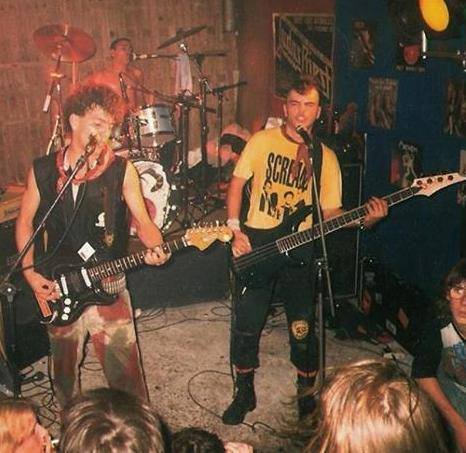
Punk provided an outlet for Brazilian youth to rebel against the oppressive system. The lyrics of Brazilian punk songs often criticised the government, social inequality, police brutality, and other issues affecting society. Punk bands and their followers sought to challenge the status quo and advocate for social change and, of course, political freedom.
The first punk bands in Brazil started to emerge in the late 1970s, influenced by the DIY ethos of the punk movement. One of the earliest and most influential Brazilian punk bands was Restos de Nada, formed in 1978. Their songs addressed issues such as police violence and the lack of opportunities for the working class.
As the punk scene grew, more bands like Inocentes, Ratos de Porão, and Garotos Podres, among others, emerged and became popular within the subculture. They played in small venues, squats, and underground spaces, as these were often the only places where they could freely express themselves without facing censorship or repression.
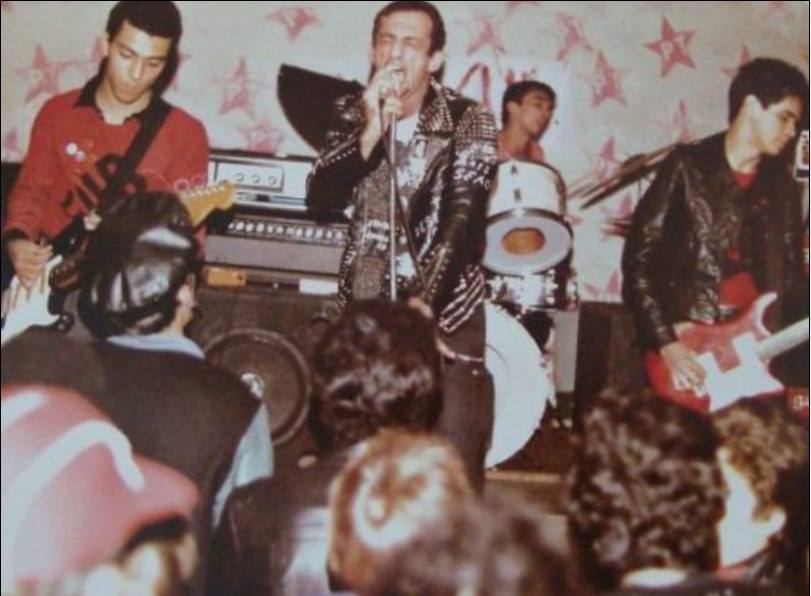
Over the years, the Brazilian punk scene has evolved and diversified, with various sub-genres and regional variations. While the country transitioned to democracy in the mid-1980s, many of the issues that fueled the initial punk movement, such as inequality and corruption, continue to persist. As a result, punk remains an important form of musical and cultural expression for marginalized and disenfranchised communities in Brazil.
Numerous Brazilian punk bands have made their mark, contributing to the rich tapestry of punk music in the country. Here are ten Brazilian punk bands you should add to your playlist!
1: Cólera (Anger)
With their raw and aggressive sound, Cólera emerged as one of the pioneering bands of the Brazilian punk scene. Formed in 1979 in São Paulo, they blended elements of punk rock, hardcore, and reggae, creating a unique sound. Check out their track ‘Pela Paz em Todo Mundo’.
2: Olho Seco (Dry Eye)
Hailing from São Paulo, Olho Seco made their mark with their fast-paced and politically charged punk songs. Known for their live performances, they became an influential band in the Brazilian punk scene. Listen to their powerful anthem ‘Nada’
3: Ratos de Porão (Basement Rats)
Formed in 1980 in São Paulo, Ratos de Porão is considered one of the most important Brazilian punk bands. Their music combines elements of hardcore punk, thrash metal, and crossover.
4: Garotos Podres (Bad Boys)
Garotos Podres, formed in 1981 in São Paulo, brought a dose of humor and satire to the punk rock scene. Their catchy and irreverent songs, often addressing social and political issues, gained them a dedicated following. Don’t miss their iconic track ‘Anarquia Oi!’
5: Inocentes (Innocent)
Originating from São Paulo in 1981, Inocentes brought a melodic twist to Brazilian punk. Their music incorporated elements of post-punk and new wave, creating a unique and captivating sound.
6: Plebe Rude (Rude Plebe)
Hailing from Brasília, Plebe Rude emerged in the early 1980s with their socially conscious punk rock sound. Their lyrics often tackled political themes and the struggles of everyday life. Check out ‘Até Quando Esperar’.
7: CPM 22
CPM 22 formed in 1995 in São Paulo. They gained popularity in the early 2000s with their energetic and melodic punk sound. Known for their catchy hooks and relatable lyrics, CPM 22 has become one of the most successful punk bands in Brazil. Some of their popular songs include ‘Um Minuto para o Fim do Mundo’ and ‘Dias Atrás.’
3: Dominatrix (Dominatrix)
Dominatrix, formed in São Paulo in 1983, embraced a more experimental approach to punk rock. Their music incorporated elements of post-punk, new wave, and industrial, creating a unique and edgy sound. Dive into their track “Girl Gathering’.
2 Carbona (Carbon)
Carbona, formed in Rio de Janeiro in 1998, brought a fresh wave of punk rock to the Brazilian music scene. Their catchy and melodic songs captured the spirit of punk while infusing it with a pop sensibility.
1: Blind Pigs (Blind Pigs)
Blind Pigs, formed in São Paulo in 1992, became known for their energetic and anthemic punk rock sound. Their music often addressed social and political issues, resonating with a wide audience.
Need more Punk In Your Life?

Video EP – DVTR rock out ‘Live on the Big Rusty Ferry’
Filmed on, yep, a big rusty ferry, on the banks of the Saint Lawrence River in Montreal, DVTR’s ‘Live on the Big Rusty Ferry’ is

Album review: Peesh illustrates another year with ‘The Perennial Effect II: Seasons’
Singer-songwriter-guitarist-drummer Peesh returns with another fascinatingly creative album, filled with 12 songs from his ongoing annual solo music project, exploring the creative workings & noises
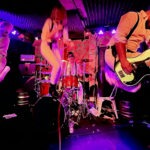
Live review – Deaf Devils / Desperate Measures / Morgellons / The Phobics at SSA#130, London, 23rd Jan 2026
We always love a Shake Some Acton gig, and their first of 2026 is set to be a special one. The best way to celebrate
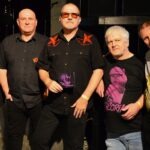
Album review: The Glorias return with full ‘Brute Force and Impudence’!
You can’t keep a good old Pompey (aka Portsmouth, UK) band down.. garage punk rockers The Glorias have just released their fourth album ‘Brute Force
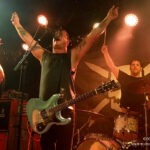
Teenage Bottlerocket and DeeCRACKS energise Arena, Vienna on 20th Jan 2026!
The sold-out former slaughterhouse, Arena in Vienna, is buzzing with anticipation long before the bands are ready to take to the stage – which confirms

Album review: The Molotovs debut – ‘Wasted On Youth’ – is anything but!
The Molotovs’ eagerly anticipated debut album ‘Wasted On Youth’ is a bold mix of new wave punk, indie, and garage rock, showcasing the band’s raw
Callum Wyatt is a Dublin-based music journalist with a passion for punk and a love for uncovering the untold stories of music history. When he’s not writing, you can find him hanging out with his cat, Oscar.

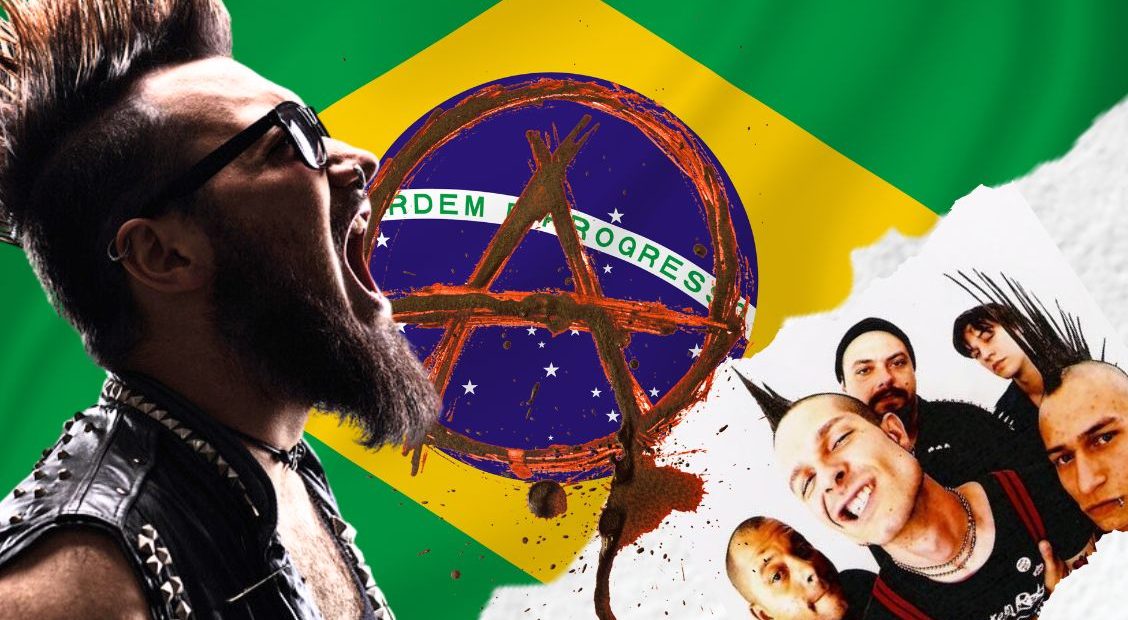


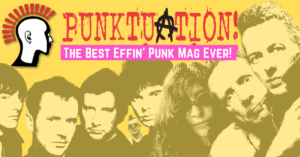 Did you know that we are 100% DIY? We run our own game. No one dictates to us, and no one drives what we can or cannot put on our pages – and this is how we plan to continue!
Did you know that we are 100% DIY? We run our own game. No one dictates to us, and no one drives what we can or cannot put on our pages – and this is how we plan to continue!